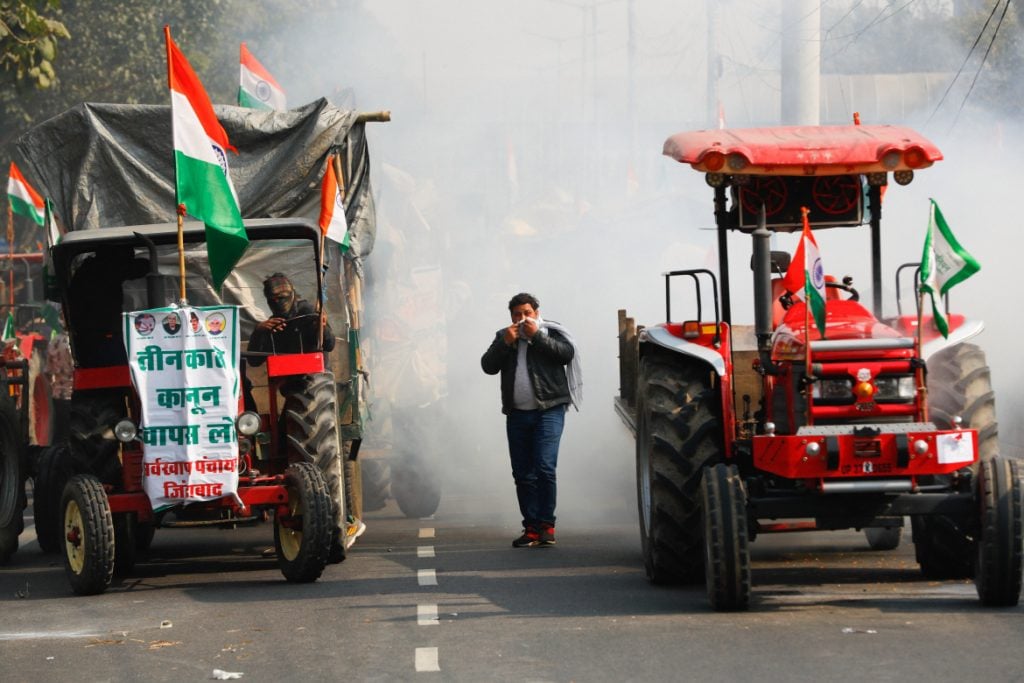
The three farm bills and farmer protest in India are the talks of the town, many aspirants who have been to SSB and AFSB interview faced the questions related to farm laws, farmers and their protest in India. We have compiled these questions that are being asked in the SSB person interview.
1. What are 3 Farm bills passed by the government?
- The Farmers’ Produce Trade and Commerce (Promotion and Facilitation) Bill, 2020, allows farmers to sell their harvest outside notified APMC mandis without taxes.
- The Farmers (Empowerment and Protection) Agreement on Price Assurance and Farm Services Bill, 2020, facilitates contract farming and direct marketing.
- The Essential Commodities (Amendment) Bill, 2020, deregulates the production, storage, movement and sale of cereals, pulses, edible oils and onion.
All You Need To Know About Farm Bill 2020
2. Why are farmers protesting against the new Farm Bills?
The farmers, from Punjab and Haryana, are protesting against the 3 Farm Bills.
- Farmer says as the new farm bills allow to private companies without relying on the APMC mandis, this could lead to the scrapping of MSP.
- In the new bills, GOI has removed many agricultural products from Essential Commodities List, this may lead to price volatility and hoarding.
- Farmers says that big corporates may benefit out of the farmers with these new laws.
3. What is MSP?
The minimum support price MSP is an agricultural product price, set by the Government of India to purchase directly from the farmer. This is not enforceable by law. By definition, this rate is to safeguard the farmer to a minimum profit for the harvest, if the open market has lesser price than the cost incurred
4. What is APMC?
An Agricultural Produce Market Committee APMC is a marketing board established by state governments in India to ensure farmers are safeguarded from exploitation by large retailers, as well as ensuring the farm to retail price spread does not reach excessively high levels.
5. What is Government doing regarding the farmer’s protest?
The government and farmer leaders had 11 rounds of talks, also GOI has decided to hold the laws for more than a year and make a committee to discuss the bills.
6. What is your opinion regarding the farm bills and farmer’s protest?
With the new bills the farmers will have a flexible system. They can sell the produces outside the physical territory of the APMC mandis and they will have an additional marketing channel. The amendment to the Essential Commodities Act which is one of the three bills under protest removes the scare or fear of the farmers that traders who buy from farmers would be punished for holding stocks that are deemed excess and inflicting losses for the farmers. Farmers have the right to protest if they think the bill is not in their favour, also it’s good to see GOI is also supporting them by have 11 rounds of talks with farmer leaders. Both GOI and farmer leaders must solve this issue by peaceful talks.
7. How a bill is passed in India?
Legislative proposals are brought before either house of the Parliament of India in the form of a bill. A bill is the draft of a legislative proposal, which, when passed by both houses of Parliament and assented to by the President, becomes an act of Parliament.
8. What are the different types of bills?
| S.No | Name of the Bill | Significance |
| 1 | Ordinary Bill (Article 107, Article 108) | Concerned with any matter other than financial subjects |
| 2 | Money Bill (Article 110) | Concerned with financial matters like taxation, public expenditure, etc |
| 3 | Financial Bill (Article 117 [1], Article 117[3]) | Concerned with financial matters (but are different from money bills) |
| 4 | Constitutional Amendment Bill (Article 368) | Concerned with the amendment of the provisions of the Constitution. |







